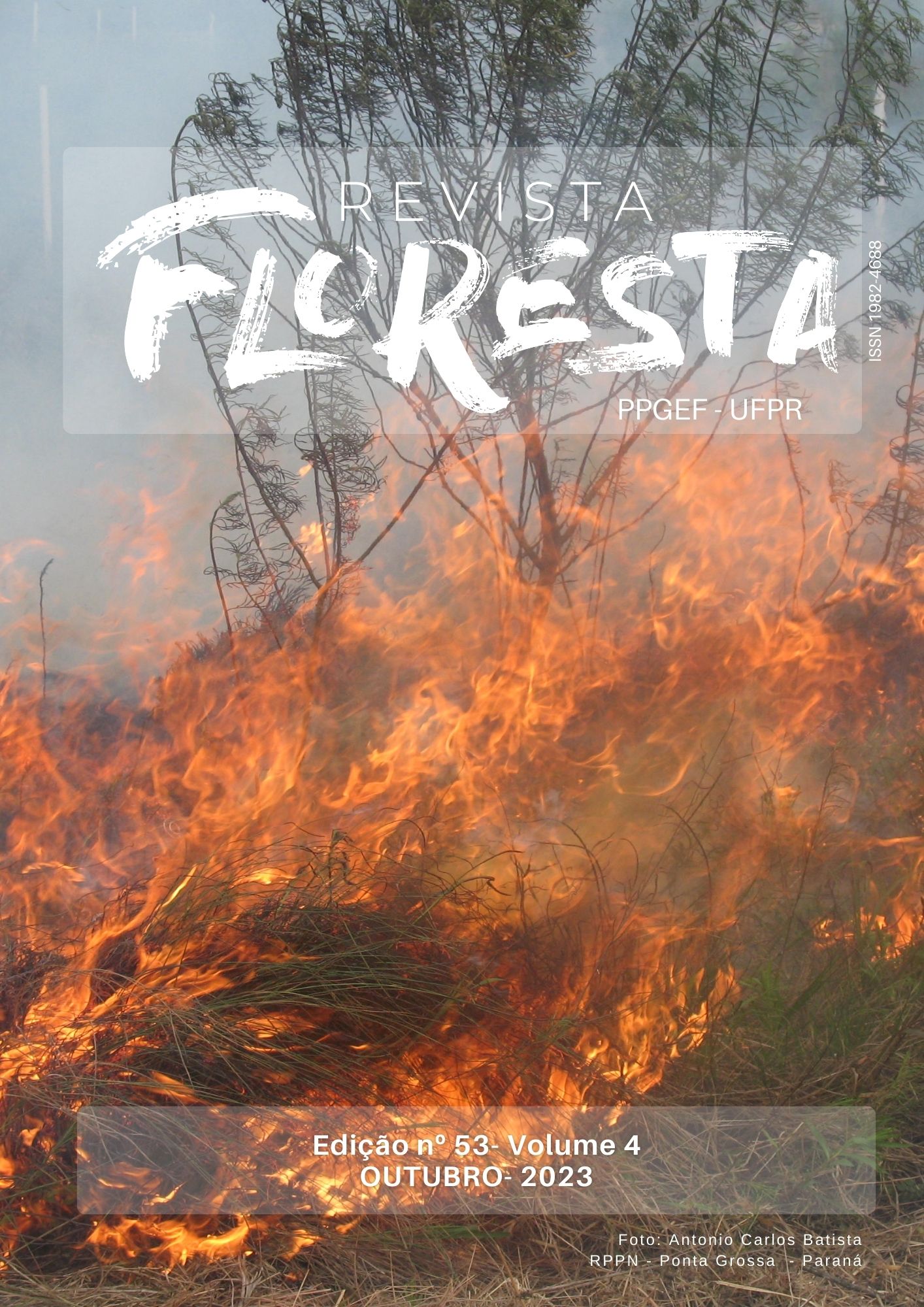PLANT RESIDUES AS AN ALTERNATIVE FOR SUBSTRATE COMPOSITION IN THE PRODUCTION OF Eucalyptus grandis SEEDLINGS
DOI:
https://doi.org/10.5380/rf.v53i4.78802Palavras-chave:
carbonized coffee husks, carbonized rice husks, coconut fiber, fresh coffee husks, manure.Resumo
Selecting constituents for substrate formulations is of fundamental importance for the production of quality seedlings. The objective of this work was to evaluate the initial growth of Eucalyptus grandis seedlings, using carbonized and fresh coffee husks, cattle manure, coconut fiber and carbonized rice husks as substrate constituents, in different combinations. As a control treatment, the commercial substrate Maxfértil was used. The experiment was set in a nursery, in a randomized block design, consisting of eight treatments and four replications, with a sample unit of 16 seedlings. To evaluate the quality of the seedlings formed, the biometric variables, and plant biomass were quantified and the characterization of the physical and chemical properties of the formulated substrates was also carried out, regarding the characteristics of the seedlings produced. Qualitative analyses were used, where the ease of removing the seedlings from the tube and the aggregation of the roots to the substrate were assessed. After data analysis, it was found that the use of coffee husks was adequate for the production of Eucalyptus grandis seedlings for most of the analyzed variables, with higher values than the seedlings formed in the control treatment. Thus, coffee husks are indicated as an alternative constituent of substrates for the production of seedlings of the referred species
Downloads
Publicado
Como Citar
Edição
Seção
Licença
Direitos Autorais para artigos publicados nesta revista são do autor, com direitos de primeira publicação para a revista. Em virtude da aparecerem nesta revista de acesso público, os artigos são de uso gratuito, com atribuições próprias, em aplicações educacionais e não-comerciais.A revista, seguindo a recomendações do movimento Acesso Aberto, proporciona acesso publico a todo o seu conteudo, seguindo o principio de que tornar gratuito o acesso a pesquisas gera um maior intrcambio global de conhecimento.
Conteúdos do periódico licenciados sob uma CC BY-NC-SA 4.0



